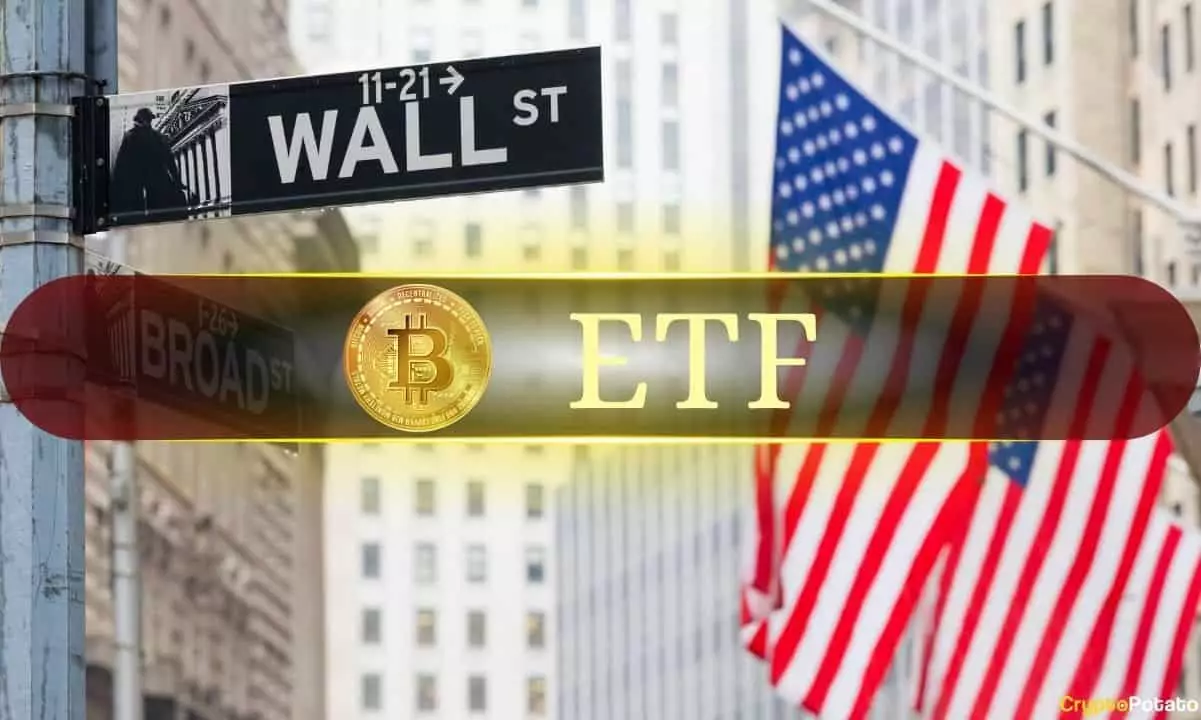In the fast-paced world of cryptocurrency, trends can shift dramatically, and investor sentiment is notoriously fickle. The landscape for Bitcoin exchange-traded funds (ETFs) in the United States has recently taken a downward turn. February 2025 is shaping up to be a particularly challenging month for Bitcoin ETFs, as evidenced by significant withdrawals and a striking lack of enthusiasm from investors. Breaking down this phenomenon reveals deeper insights into both the market itself and the external factors influencing it.
The initial excitement surrounding the launch of 11 spot Bitcoin ETFs last January took many investors by storm. Many rushed to transfer assets from traditional vehicles like the Grayscale Trust into more modern offerings from reputable firms such as BlackRock and Fidelity. This initial wave of investment illustrated a profound bullish sentiment towards Bitcoin, packaged within the mainstream financial establishment. However, the momentum witnessed earlier in the year has dwindled, with February presenting a starkly different narrative—a trend where withdrawals have overshadowed any attempts at growth.
Despite February traditionally being a favorable month for Bitcoin pricing, recent metrics tell a different story. Data highlights only four days of net inflows during this entire month, underscoring a severe lack of commitment from investors. This is particularly ironic given that Bitcoin is usually buoyed by such optimistic seasonal trends—indicating not just market dynamics but also a pivot in how investors are viewing Bitcoin at present.
A myriad of factors contributes to the diminishing demand for Bitcoin ETFs in February. Among these, the political climate cannot be overlooked. The controversial actions and statements from President Trump, particularly regarding tariffs, economic stability, and geopolitical issues like the war in Ukraine, have cultivated an environment of uncertainty engulfing market players. This volatility has seemingly eroded investor confidence in Bitcoin, leading to a hesitancy to commit capital to ETFs, which are often viewed as structured yet risky investments.
Furthermore, the post-election landscape was expected to usher in a regulatory framework that could favor cryptocurrency investments. However, the promised regulatory friendliness appears to be either delayed or there has been a disappointing lack of tangible improvements, which has further stymied investment enthusiasm. The interplay of these external factors paints a picture of an anxious market, where investors tread carefully, resulting in diminished inflows into Bitcoin ETFs.
While Bitcoin ETFs have struggled this month, it is essential to contextualize their performance through comparison with Ethereum ETFs. Although Ethereum products have also seen volatility, they have fared relatively better with only a few red days compared to Bitcoin’s stark trend of withdrawals. The $307.8 million inflow into Ethereum ETFs on February 4 demonstrates a momentary spike in confidence that has not been mirrored in Bitcoin products.
Nonetheless, even Ethereum saw $22 million in withdrawals towards the end of the week, indicating a waning enthusiasm that affects the entire cryptocurrency space. While it hasn’t matched the upheaval faced by Bitcoin ETFs, Ethereum’s performance is a reflection of the prevailing climate of uncertainty that seems to grip digital assets at large.
The tumultuous landscape for Bitcoin ETFs in the United States represents a larger narrative within the cryptocurrency ecosystem—one marked by unpredictability, regulatory concerns, and fluctuating market sentiments. Despite the temporary excitement surrounding the launch of various ETFs and some early enthusiasm, the reality of investor behavior in February is sobering.
Looking ahead, it will be crucial for market analysts and participants to keep a close eye on both external political influences and internal market dynamics to gauge potential trends. As we navigate these uncertain waters, an adaptable strategy will be vital for investors hoping to capitalize on future opportunities in the cryptocurrency space.

